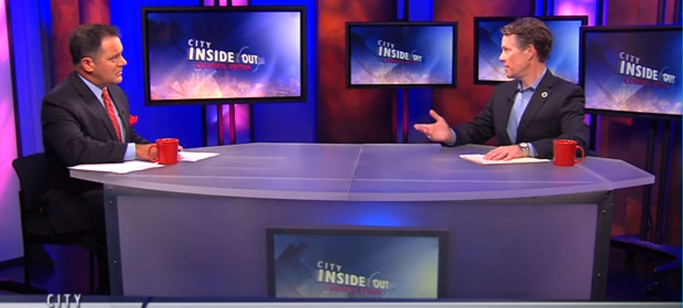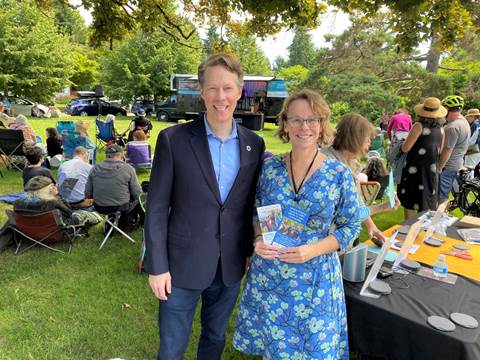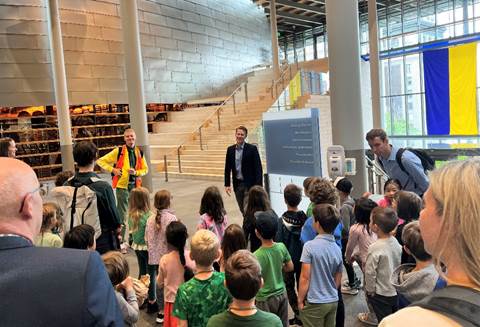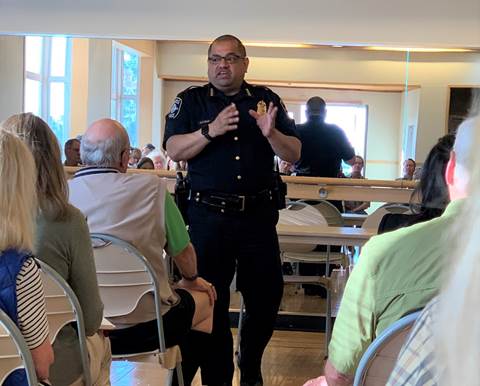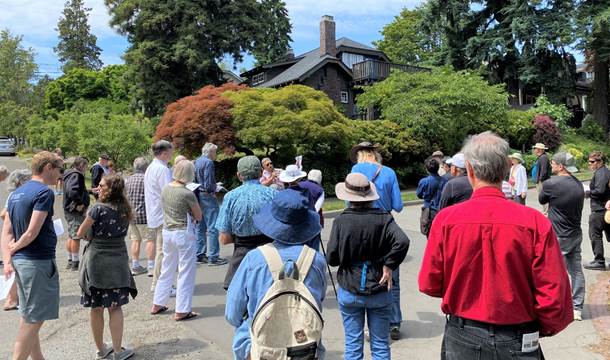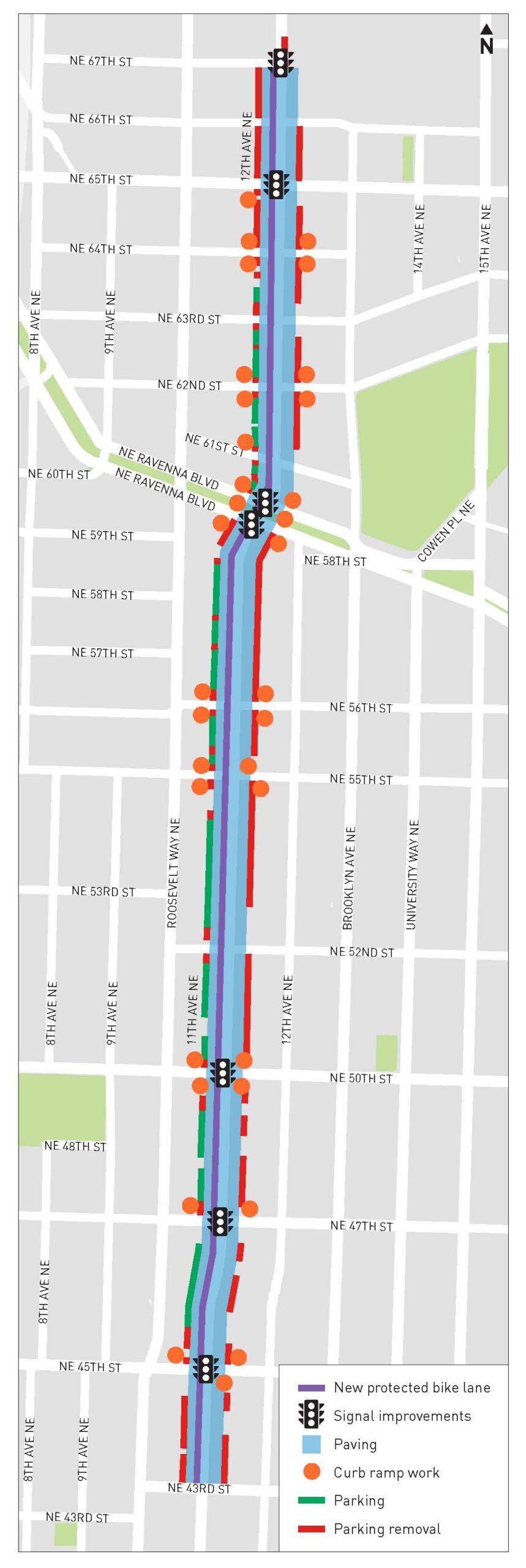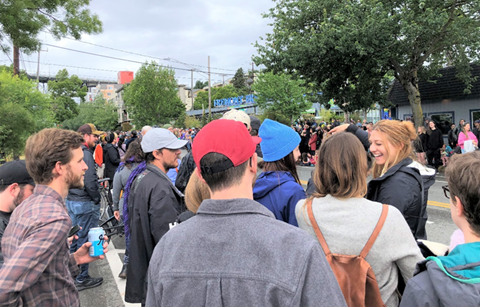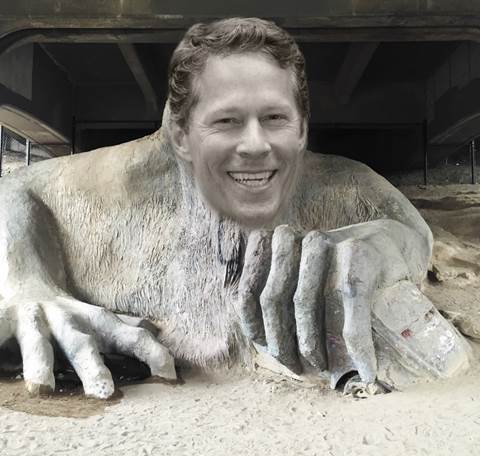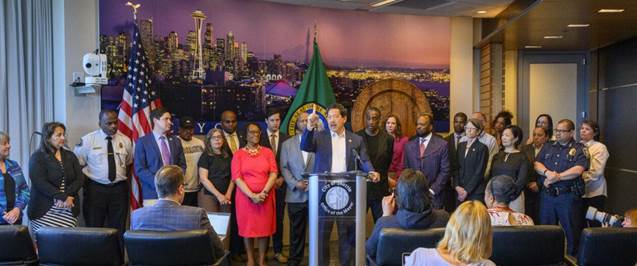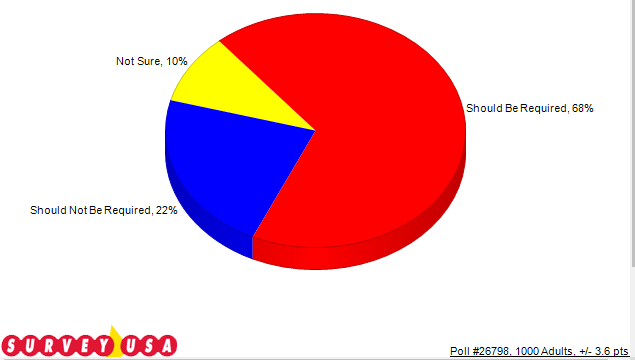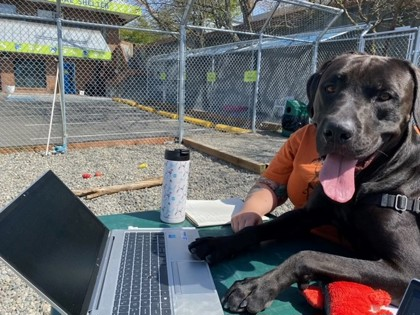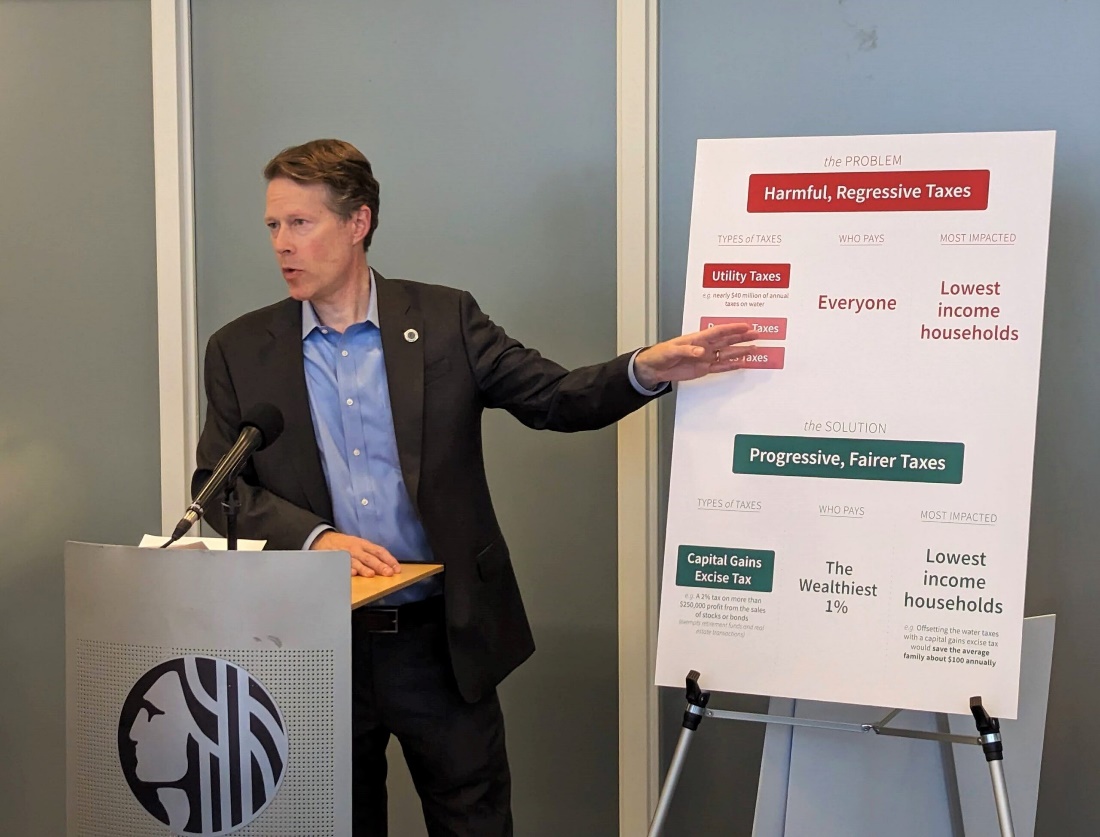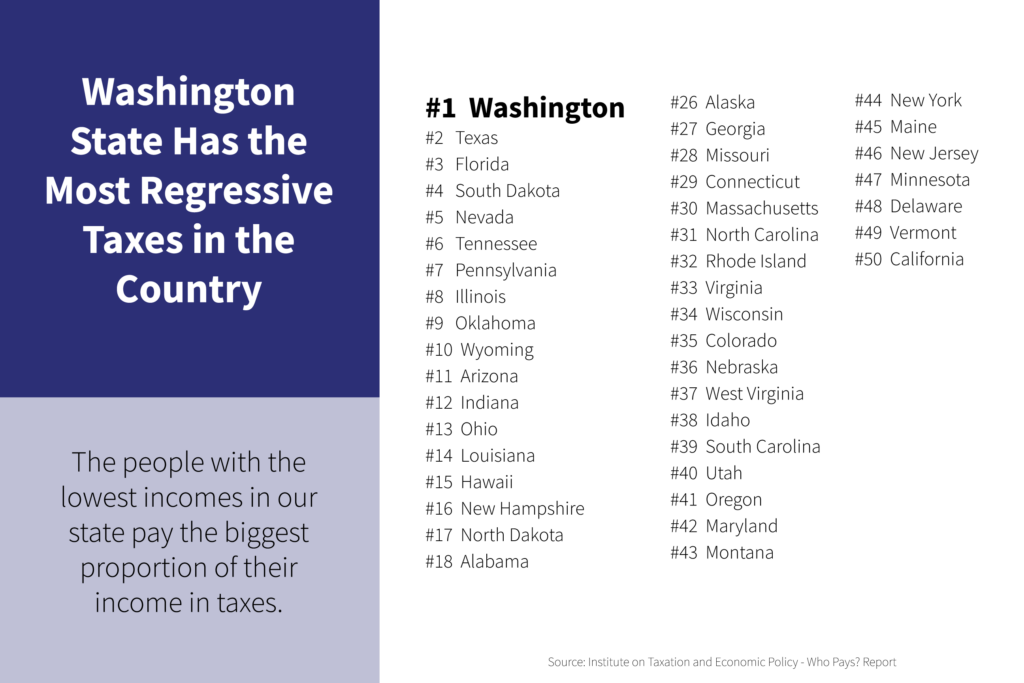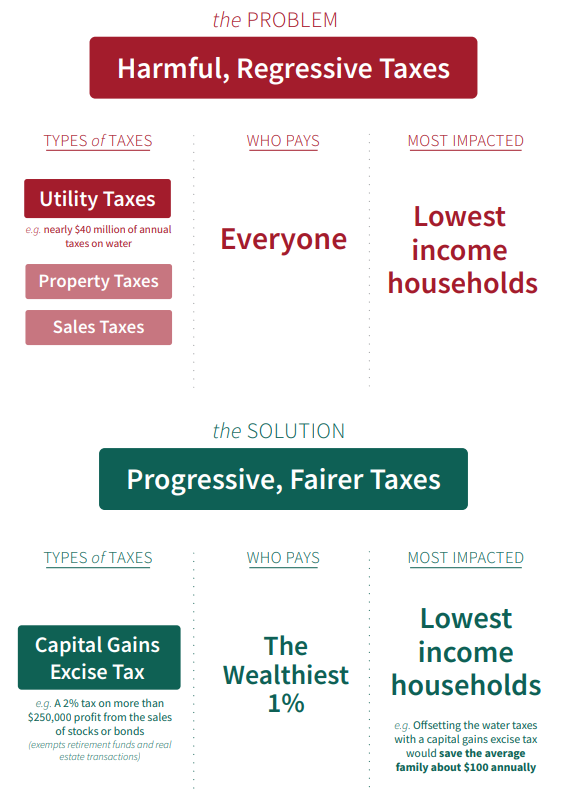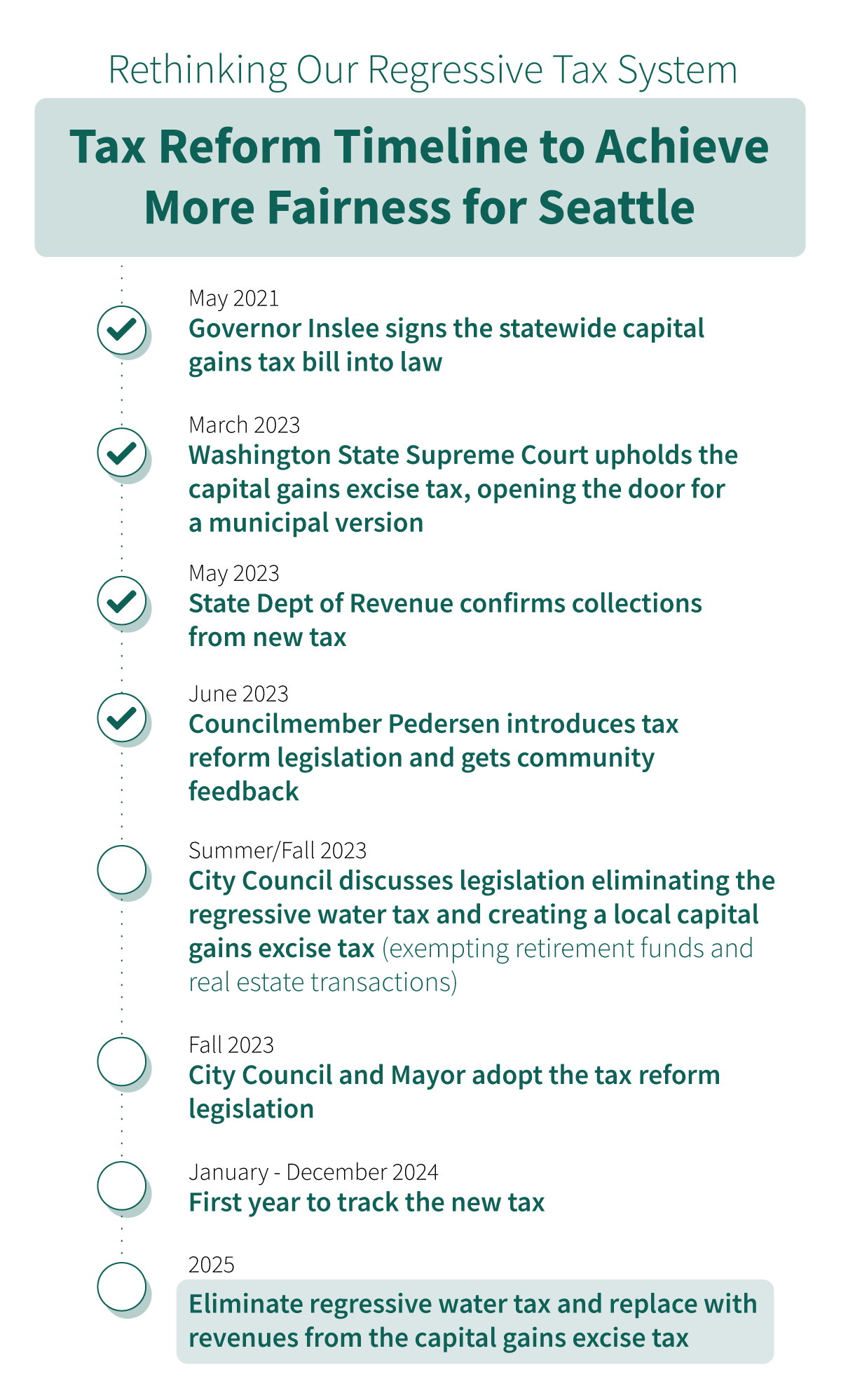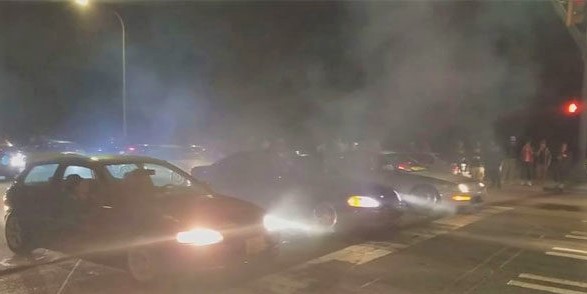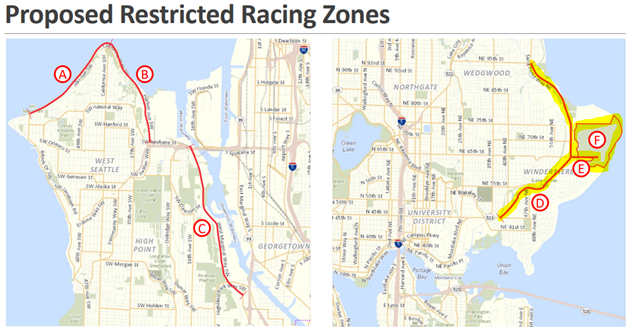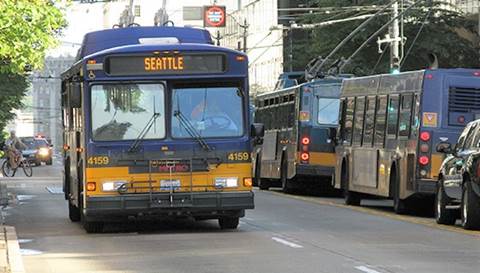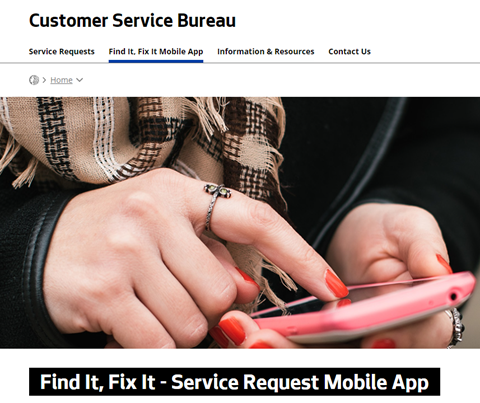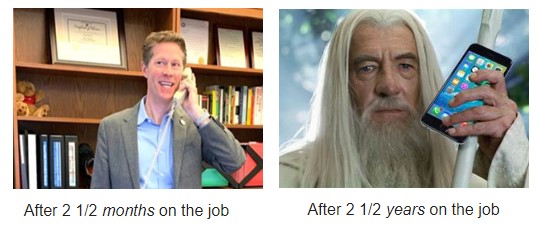June Updates – Urging City Hall to Stop Taxing Your Drinking Water 💸
Friends and Neighbors,
As we enter the warmer summer months, I answer questions on hot local government issues for the Seattle Channel – including why it’s time for City Hall to stop taxing your drinking water. That and much more in our June newsletter!
Seattle Channel Interviews Alex Pedersen
Seattle Channel journalist Brian Callanan asked me to provide insights on a wide range of policy questions, including public safety, progressive tax reform, environmental protections, transportation projects, and more. Seattle Channel is a publicly funded media operation located at City Hall. We rely on the award-winning Seattle Channel to provide full coverage of City Council meetings, mayoral press conferences, educational programming, and the occasional grilling of local government officials.
To watch the 26-minute interview, CLICK HERE. (Note: the interview was recorded Friday, June 16, 2023 and published online Tuesday, June 20, 2023.)
NEWSLETTER CONTENTS:
- District 4: Summer events for Northeast Seattle Seniors; Bryant Elementary at City Hall; Laurelhurst Annual Meeting; Ravenna-Cowen Historic Structures; Fremont Solstice; Public Policy Progress at UW; 11th & 12th Ave Project Input; Wedgwood Arts.
- Public Safety and Homelessness: One Vote Short to Curb Illegal Drugs in Seattle; Graffiti Damage, Tent City 3 Relocates; Amend Legislation to Protect Pets.
- Taxes and Budgets: Tax Reform Needed for Fairness — Tell City Hall to Stop Taxing Your Drinking Water.
- Land Use: updates on home-based business regulations and design review public input legislation.
- Transportation & Seattle Public Utilities Committee: Let’s Reduce Dangerous Street Racing; Adjusting to Transit Changes; Water Quality Breakthrough in Wallingford.
- Providing Input: It’s Been Raining Surveys in Seattle!
For my previous newsletters, you can CLICK HERE to visit my website / blog. Thank you for caring enough to demand better from City Hall.
DISTRICT 4
Councilmember Alex Pedersen and Emily Jones, the Executive Director of NEST, across from the Wedgwood Presbyterian Church for a summer concert for Northeast Seattle seniors, June 22, 2023.
On June 22, 2023, I joined dozens of Northeast Seattle seniors invited by the nonprofit NEST to hear classical music on wheels: The Concert Truck, hosted by the Seattle Chamber Music Society and Wedgwood Presbyterian Church.
A nonprofit organization founded in 2009, the vision of NEST is “To build and sustain a northeast Seattle community where neighbors engage with and support one another through the transitions of aging.” How do they accomplish this? “By providing a strong support network through volunteers and trusted business referrals, older residents can stay in the homes of their choosing and stay engaged in the neighborhoods they love, for as long as possible.”
- To join NEST’s mailing list, CLICK HERE.
- To visit https://www.nestseattle.org/ online and see their event calendar, CLICK HERE.
- For more local performances by The Concert Truck, CLICK HERE.
Bryant Elementary School Explores Their City Hall
Councilmember Alex Pedersen appears before one of his toughest audiences: the kindergartners of Bryant Elementary visited their City Hall on June 26, 2023 to ask questions of their elected officials. Organized by their thoughtful teachers and parents, many of the children from District 4 were sporting green shirts to support our Emerald City. These future city leaders enjoyed exploring City Hall’s famous “blue bridge” and succeeded in staying awake during a very dry committee meeting. Councilmember Pedersen did his best to explain the various responsibilities of a nation founded on the principle of self-government without a monarch — and why there’s grass on City Hall’s roof.
Laurelhurst Annual Meeting: Safety First
Chief of Police Adrian Diaz spoke at the annual Laurelhurst community meeting along with Councilmember Alex Pedersen at the community center on June 5, 2023. They each provided updates to neighborhood residents whose questions focused on public safety and homelessness, the two top concerns of most Seattle residents as confirmed by recent citywide polls.
Ravenna-Cowen Historic District Walking Tour
Councilmember Alex Pedersen joined dozens of historic preservationists of all ages during the June 24, 2023 walking tour that featured historic structures within the Ravenna-Cowen National Historic District. For future walking tours, visit their website by CLICKING HERE.
Public Policy Experts Blossoming in District 4

Did you know that our City Council District #4 produces the most public policy graduates in Seattle? That’s because we’re home to the University of Washington’s Evans School of Public Policy & Governance, named after the former Governor and U.S. Senator Daniel J. Evans (who remains among our most famous D4 residents).
On June 7, 2023, I attended their master’s degree ceremony with my staff, where King County Councilmember Girmay Zahilay eloquently delivered the keynote speech with an important final lesson for this year’s highly acclaimed graduates (including Gabby Lacson): Progress moves at the speed of professional relationships. In other words, it’s not just the brilliant ideas or perfect PowerPoints (or, in my case, spreadsheets and long-winded blog posts) that accomplish good things. Progress requires earning the trust and respect of your colleagues and addressing the valid concerns their constituents might have about new proposals. Godspeed graduates and thank you for choosing public policy to forge your future!
11th Ave NE and 12th Ave NE “Safety Project” from SDOT
I attended two of the community meetings in District 4 where SDOT explained their plans to repave approximately 20 blocks of 11th Avenue NE (which becomes 12th Avenue NE) between the U District and Roosevelt light rail stations. As is typical and prudent, SDOT leverages the opportunity of a street paving to do other work which, in this case, is installing a northbound bike lane to complement the southbound bike lane on Roosevelt Way. (This would be in addition to the existing bike lanes in both directions for much of 15th Ave NE.) The meeting with the largest attendance occurred on June 13, 2023 when several residents raised concerns about the loss of street parking (see the red stripes on the map above), including families with small children, senior citizens, and a veterinarian’s office whose customers typically require a vehicle to travel with their sick pets.
For historical context, SDOT reminded everyone that this 11th Ave/12th Ave NE bike lane was on the original 2014 Bicycle Master Plan network map (though 15th Ave NE was not). In addition, this northbound bike lane was in the original design for the “Rapid Ride” J Line project that was supposed to stretch to the new Roosevelt light rail station before it was cut short to the U District due, in part, to King County re-focusing its limited transit funds on equity areas in South King County. Regardless, it would be ideal if SDOT incorporates reasonable input of impacted neighbors and businesses to make modest adjustments so that most people are happier with the project and safety is increased when compared to the current situation. SDOT is already considering moving the bike lane as proposed on the west side of the avenue to the east side of the avenue to reduce conflicts and optimize safety. Coincidentally, some of the parking spaces might be retained by this change.
Timing: SDOT expects a revised design that quickly incorporates much of the community input before the end of summer.
For more about the project, CLICK HERE to visit SDOT’s project website and to sign up for updates. You can provide input to SDOT by emailing: dot_11th22thpaving@seattle.gov
EASTLAKE AVENUE: And now for my “broken record” gripe about SDOT’s plans for Eastlake Avenue: With the 11th/12th Ave NE project, street parking will at least stay on one side of the street and, ideally, SDOT designers will retain more parking near impacted small businesses. SDOT – and the Mayor’s Office — will be confronting much bigger community challenges, however, with their bike lane plan (embedded into a rapid ride bus project called the “J Line”) to remove ALL parking on BOTH sides of Eastlake Avenue for nearly two miles from the University Bridge to the Fairview Bridge. SDOT is plowing ahead with that disruptive project despite my concerns: it’s an inequitable use of taxpayer funds which are needed more in south Seattle and south King County, it removes bus stops impacting residents of Eastlake with mobility challenges, there’s already a #70 bus (which will be eliminated), and the vast majority of small businesses and most people who actually reside in Eastlake oppose that project. To learn more about the Eastlake Avenue project, CLICK HERE.
Wedgwood Arts Festival
Visit the annual Wedgwood Art Festival July 8 and 9. The art festival is held on the playground of Our Lady of the Lake Parish School at the cross streets of 38th Ave NE and NE 89th St. For more information on the festival, CLICK HERE.
Freewheeling at the Fremont Solstice Parade
Seattle’s District 4 extends to the eastside of the Aurora Bridge (Highway 99), so we benefited from the end point of the Fremont Solstice Parade where colorful cyclists displayed it all near Fremont Brewery on June 17, 2023. It was uplifting to see so many smiling faces enjoying the outdoors together. Even though Councilmember Pedersen rode his bike along the Burke-Gilman trail to reach the Fremont Solstice Parade, he claims to have been properly clothed.
Fremont Troll or Mt. Crushmore?
caricature courtesy of The Stranger blog – and presumably Photoshop.
I want to thank The Stranger for picking a photo when I was having a good hair day and for making my shoulders look so strong! (Fact Check: only half of the Fremont Troll is located in District 4.) Seriously, though, tax reform is an important issue, so I appreciate the time they spent trying to communicate the topic, even though there are differences of opinion.
SAFETY AND HOMELESSNESS
Just 1 More Vote Needed: Illegal Drug Use and Next Steps
Just one more vote: that’s all that’s technically needed to adopt the State law here in Seattle regarding illegal drug use and possession.
As many of you saw from media reports, both Councilmember Sara Nelson and I sponsored Council Bill 120586 for our City Attorney, which would have simply adopted in Seattle our State government’s updated law against illegal use and possession of harmful drugs. While several of our colleagues said they were waiting for that decisive action from the State to avoid a patchwork of enforcement across the region, a majority of City Councilmembers nevertheless rejected incorporation of the State law on June 6 with a close 5 to 4 vote. The councilmembers voting to adopt the state law were Juarez, Nelson, Pedersen (me), and Strauss, while councilmembers voting against the ordinance were Herbold, Lewis, Morales, Mosqueda, and Sawant.
Failing to adopt the State law regarding drug misdemeanors in Seattle makes us an outlier (again) and means our City Attorney cannot take such drug cases to court. This comes after our King County Prosecutor already made it clear multiple times that she would not take such misdemeanor drug cases since King County focuses on felonies instead. Oregon recently experienced worse urban problems when trying to decriminalize drug possession. See the two April 13, 2023 articles from The Economist magazine by CLICKING HERE and HERE.
To overcome this impasse, Mayor Harrell convened various groups on June 12 in hopes of finding additional common ground. In his prepared remarks the mayor said, “We are committed to addressing the deadly public health crisis playing out on our streets, holding dealers accountable for trafficking illegal drugs harming our communities, and advancing innovative health strategies to help those struggling with substance use disorder. There is a time for appropriate constitutional arrests when people are posing a threat to others; however, when people are a threat only to themselves, they need compassionate treatment. Updating the Seattle Municipal Code to align with recently passed state law makes sense, as does demonstrating how this additional tool will be applied and how it fits in the broader spectrum of treatment and diversion options.”
While we wait for additional Councilmembers to vote YES, Seattle is unable to prosecute illegal drug usage in public places and use that as a tool to get more people into treatment and services. I look forward to colleagues allowing for a re-vote as soon as possible to enable Seattle to incorporate the State law into our comprehensive approach to public safety and health.
MORE INFO:
- For the Mayor’s June 12, 2023 press release, CLICK HERE.
- For Mayor Harrell’s Executive Order on fentanyl and initial pieces of his “downtown activation plan” from April 17, 2023, CLICK HERE.
- For the press release from City Attorney Davison and Councilmembers Nelson and Pedersen from May 16, 2023, CLICK HERE.
- For a letter of support from the business community May 11, 2023, CLICK HERE.
- For the 3-page piece of legislation for Seattle (Council Bill 120586), which simply adopts the State version, CLICK HERE.
- For Seattle Times columnist Danny Westneat’s June 21, 2023 column, “Now can we act? WA’s overdose deaths are fastest rising in the nation,” CLICK HERE. For his April 12, 2023 analysis of Bellingham’s tougher actions, CLICK HERE. For his December 3, 2022 column “Between prison and pamphlets: WA looks for an answer to the drug crisis,” CLICK HERE.
Graffiti in Seattle: What the Fubar Happened?
image from Wikipedia, not graffiti on a wall in Seattle.
Many people couldn’t believe their eyes when they saw yet another questionable decision from a Seattle-based government official that seemed to legalize more blight and debase the quality of life in our region.
As initially reported in the Seattle Times on June 14, 2023, “Seattle police have been barred — at least temporarily — from making graffiti-related arrests after a federal judge issued an injunction on the city’s contested property damage law late Tuesday.”
Huh? The article continues: “U.S. District Court Judge Marsha Pechman’s order prohibits arrests under the city’s existing law, which four plaintiffs claim violated their First and 14th amendment rights, among other claims, ‘by being both vague and overbroad.’”
Thankfully, after a joint request from the City Attorney AND the plaintiffs, the judge quickly narrowed her ruling, as reported in the Seattle Times on June 15, 2023: “After confusion around the breadth of an injunction barring Seattle police from making graffiti arrests, a judge has now clarified that other categories of the city’s property destruction law can be enforced.”
For the Seattle Times article “Judge clarifies graffiti injunction, allows Seattle to make certain arrests,” CLICK HERE.
We look forward to the Mayor’s Office working with the City Attorney’s Office to revise our local ordinance, as needed, so that damaging or blighting graffiti (that is not considered protected “speech”) can be prevented and the law enforced appropriately. We also look forward to the Mayor’s Office coordinating the various City departments to continue to clean up graffiti and ask that these efforts extend to all neighborhoods in addition to Seattle’s downtown.
Tent City 3 Relocates from Bryant/Wedgwood to Capitol Hill
As scheduled, the group of people experiencing homelessness that calls itself “Tent City 3” found a new location after its 3-month stay at the Unitarian Church on 35th Avenue NE in the Bryant/Wedgwood area across from the NE Seattle Library. A few months ago, I visited Tent City 3 residents during their 90-day stay adjacent to Husky Stadium (also in District 4), I met with the leaders of their previous host in the U District, and I attended the public input meeting at the Unitarian Church. For more information about the Unitarian Church’s efforts on 35th Ave NE, CLICK HERE. For my previous blog post on this issue of Tent City 3, CLICK HERE.
Should the organizations that receive tax dollars to provide low-income housing be required to fill some of their available vacant units with people experiencing homelessness?
The professional survey that I commissioned in May 2023 asked 1,000 Seattle residents, “Should the organizations that receive tax dollars to provide low-income housing be required to fill some of their available vacant units with people experiencing homelessness?” A whopping 68% said YES. It would seem that the hundreds of vacant units within the 15,000-unit portfolio of the City’s Office of Housing could have been used to house every individual from Tent City 3. Unfortunately, the existing contracts between the city government and the organizations providing housing subsidized by the city do not require them to prioritize housing-ready individuals like those living outside at Tent City 3. Moreover, the funding provided to Tent City 3 apparently does not require it to provide case management or track the number of people exiting to permanent housing. To rectify these dual shortcomings, I believe there should be (1) a stronger link between Seattle’s Office of Housing and the King County Regional Homelessness Authority to prioritize housing-ready individuals experiencing homelessness so that all units are occupied and (2) stronger incentives for groups providing shelter to track data and encourage those living outside to move inside.
MORE ON SAFETY AND HOMELESSNESS
In case you missed my analysis of 9-1-1 response times, police recruitment, and the revised 5-year plan from the King County Regional Homelessness Authority from May 2023, CLICK HERE.
IF OUR PETS COULD AMEND LEGISLATION: Council Bill 120580 Should Exempt In-Home Services Such as Pet Care
If our pets could write new laws, they would probably make sure they’re protected. Currently there is a well-intentioned proposal (Council Bill 120580) to limit when and how app-based companies can “deactivate” the independent contractors who use their technology to engage with customers. Essentially the legislation aims to prevent tech companies from “unfairly” pausing or removing the independent workers from the tech platforms, such as the applications you may use on your cell phone to request services / deliveries. As currently written, this new regulation would include companies based in Seattle, such as Rover, that provide not only jobs and tax revenue for our city, but also connect pet sitters/walkers with pet owners.
Many pet owners wrote to City Council asking us to exempt pet care companies. Councilmember Sara Nelson crafted Amendment 5a to exempt “marketplace network companies” (such as Rover) to be consistent with recent wage and sick leave regulations. But, unfortunately, her prudent amendment failed by a committee vote of 2 to 3. (Councilmember Nelson and I wanted to exempt companies like Rover, but Councilmembers Herbold, Lewis, and Mosqueda voted against it.) The same negative result defeated my amendment 5b, which would have exempted just pet care companies.
I am grateful to committee colleagues who voted on June 27 in favor of my Amendment 2c. That successful amendment expands the legislation’s definition of “egregious misconduct” by adding actions or behavior that could endanger the physical safety of an animal. But pet care service operations and other in-home services are still not sufficiently protected from privacy or safety concerns because they are still included in this legislation limiting deactivations.
Only about half of the amendments brought forth to the June 27 Public Safety and Human Services Committee were voted on. The committee will deliberate and vote on the remaining amendments and underlying legislation in mid-July 2023.
CALL TO ACTION: You can share your concerns by emailing City Council at Council@seattle.gov and the Mayor’s Office (Bruce.Harrell@seattle.gov and Greg.Wong@seattle.gov), and urge them: “To be consistent with existing wage regulations and to protect vulnerable customers and pets, amend the proposed app-based “deactivation” regulations of Council Bill 120580 by exempting marketplace network companies including in-home and pet care services!” Feel free to include a picture of your pet as well!
MORE INFO:
- To review the draft legislation of Council Bill 120580 and proposed amendments, CLICK HERE.
- To watch the June 27, 2023 Public Safety and Human Services Committee and discussion of Council Bill 120580, CLICK HERE [timestamp 1:12:23].
- For the memo from our City Council Central Staff that identifies issues with the proposal, CLICK HERE and, for their May 23, 2023 presentation, CLICK HERE.
- If you don’t have a pet yet, consider “Kafka” (the doggie in the photo above) as well other dogs, cats, rabbits, and other cute creatures from our Seattle Animal Shelter.
TAXES AND BUDGETS
Time to End the Regressive Tax on Your Water: Time for Tax Fairness
On June 7, 2023, Councilmember Pedersen unveiled his legislation which would – for the first time – eliminate a regressive tax in Seattle by repealing the tax on your drinking water.
On June 7, 2023, I announced my legislation which would – for the first time – eliminate a regressive tax in Seattle by repealing the tax on your drinking water. To replenish the lost revenue in a fiscally responsible manner, he introduced companion legislation that would add a local 2% to the State’s capital gains tax in Seattle. The Seattle Times then asked residents from June 12 through 16, 2023 for their opinion on just the capital gains excise tax and 54% supported it. Because that poll did not also gauge support for corking the drinking water tax, we predict a gushing of support for our revenue-neutral proposal because people are thirsting for more fairness, rather than just a flood of new taxes.
CALL TO ACTION: You can write to your elected officials at City Hall and tell them to stop taxing your drinking water. Send your email to:
Message: Please stop taxing our drinking water! Completely remove the harmful and regressive 15.54% tax for everyone in Seattle. Support Alex Pedersen’s legislation Council Bill 120602 this year! More information on his website: https://pedersen.seattle.gov/time-for-tax-fairness-in-seattle/ Thank you.
To learn more about this effort, here is our detailed press release from June 7, 2023 announcing our legislation to repeal the tax on your drinking water – the first time Seattle would proactively eliminate a regressive tax. Unfortunately, the media headlines focused on the other part of the equation: 2% capital gains excise tax that would be used to replenish the lost revenue in a fiscally responsible manner. As I’ve mentioned in previous newsletters, I’m also working on a proposal that could reduce property taxes used to pay for transportation infrastructure. It’s all part of trying to achieve real tax reform, so that it’s more fair in Seattle.
Councilmember Pedersen launches bold tax reform to make the system more fair for Seattle
Pedersen’s fiscally responsible tax reform legislation would, for the first time, eliminate a regressive tax for everyone and offset that water tax revenue with a local 2% capital gains excise tax.
SEATTLE – Councilmember Alex Pedersen (District 4 – Northeast Seattle) announced today a bold tax reform to make our system more fair for Seattle with legislation eliminating a regressive water tax for everyone and replacing it with a 2% local expansion of the State’s new progressive tax on high-end capital gains.
“Everyone knows the people of Seattle have suffered too long from one of the most regressive tax systems in the nation,” said Councilmember Pedersen, chair of City Council’s Transportation and Seattle Public Utilities Committee. “Because tax reform for tax fairness is overdue in Seattle, I am introducing legislation to eliminate our regressive and arbitrary tax on everyone’s drinking water and replacing it with a reasonable 2% capital gains excise tax on large, non-retirement financial gains to match the new State law. The top 1% can afford to pay this 2%. Adopting a more fair and progressive capital gains tax would ensure no one has to pay taxes for their drinking water in Seattle, making this the first time City Hall has proactively eliminated a regressive tax.”
Matching the new State law, this local tax would apply to only a very small number who gain more than $250,000 in a single year from the sale of assets, such as stocks or bonds, and it would exempt retirement savings and real estate transactions. Using zip code-level information gathered for the state-level capital gains excise tax, a local 2% could generate approximately $50 million annually, which would offset the amount City Hall’s General Fund takes from your water bills each year, so that this tax reform is essentially revenue-neutral.
The Institute for Taxation and Economic Policy (ITEP) consistently ranks Washington State as one of the most unfair systems in the country, where lower income residents pay a much higher percentage of their household earnings for taxes and fees than wealthier residents.
Pedersen’s plan for Seattle tax reform would utilize the revenue from the capital gains tax to eliminate one of our most regressive forms of taxation: the utility tax on water. As our system currently stands, households and businesses are not only charged for the cost of the water from Seattle Public Utilities, but also taxed on that same water by City Hall at an arbitrary rate of 15.54%. The revenue from the regressive water tax flows into the city government’s General Fund, which supports various City-funded operations.
For a typical household in Seattle, eliminating the water tax is likely to save at least $100 per year.
Local small business owner, Molly Moon Neitzel of Molly Moon’s Ice Cream said,
“As a small business owner who sees her employees struggling with regressive expenses, I support extending the progressive capital gains excise tax to Seattle to eliminate the city’s tax on everyone’s water bills. Councilmember Pedersen’s legislative proposal is an important part of the solution, as we work toward a more fair economic system.”
John Burbank, founder and retired Executive Director of the Economic Opportunity Institute think tank, said,
“Introducing a progressive tax to sunset a regressive tax on everyone is a welcome and elegant step forward in addressing economic inequities in Seattle. Lower income households that pay a greater proportion of their income for their utility bills, including many seniors on fixed incomes, will benefit from eliminating the water tax. I appreciate Councilmember Pedersen for swiftly recognizing this opportunity for greater fairness by leveraging the new State law to benefit the people of Seattle with meaningful tax reform.”
TIMING: Pedersen’s legislation needs to be adopted before the end of 2023 for Seattle to have authority throughout 2024 to track and tax the high-end, annual capital gains within the city limits and then eliminate the regressive water tax for everyone at the end of 2024. Moreover, City Hall has already endorsed for 2024 its $7.4 billion budget (of which $1.6 billion is for the General Fund), and it will require all of 2024 to quantify the capital gains taxes to be collected to offset the water tax. Put simply, Pedersen’s revenue-neutral tax reform legislation must be adopted in 2023 to impact 2025. Not adopting the legislation in 2023 would essentially signify that City Hall leaders remain okay charging its residents the unnecessary, regressive tax on drinking water.
Expanding the State’s new excise tax for high-end ($250,000 or more) capital gains that exempt retirement funds and real estate transactions so that it eliminates a regressive tax paid by everyone in Seattle is prudent and fiscally responsible, considering widespread concern about our city government’s growing budgets. Nearly 60% of Seattle voters said their taxes are too high and nearly two-thirds said they don’t trust City Hall to spend their tax dollars responsibly, according to a survey conducted by EMC Research in April 2023. A revenue-neutral tax reform that, for the first time, proactively eliminates a regressive tax can help to rebuild trust with the majority of residents who are skeptical of financial proposals from City Hall.
As chair of the City Council committee overseeing Seattle Public Utilities, Councilmember Pedersen held a discussion on June 6, 2023 to highlight this regressive taxation on utilities. He also introduced the concept of using the progressive excise tax to provide relief for regressive taxes in his widely distributed newsletters from April and May 2023.
LINKS TO MORE INFO:
- For a link to Councilmember Pedersen’s proposed legislation:
- Repeal of the regressive water tax: CLICK HERE for CB 120602.
- Application of the progressive capital gains excise tax: CLICK HERE for CB 120601.
- For Councilmember Pedersen’s press release on June 7, 2023, CLICK HERE. To see the visuals from the presser, CLICK HERE
- To watch the June 7, 2023 press conference, CLICK HERE.
- For Councilmember Pedersen’s blog post, CLICK HERE or go to: https://pedersen.seattle.gov/time-for-tax-fairness-in-seattle/
- For June 6, 2023 presentation on “utility taxes” from our City Council Central Staff, CLICK HERE or go to: https://seattle.legistar.com/View.ashx?M=F&ID=12060070&GUID=06C1DFD8-325F-4F52-96A9-80B7E32021D0
- For utility tax information from the non-partisan Municipal Research Services Center, CLICK HERE or go to: https://mrsc.org/explore-topics/finance/revenues/utility-tax
- For a description of the non-retirement capital gains tax from the State Department of Revenue, CLICK HERE or go to: https://dor.wa.gov/taxes-rates/other-taxes/capital-gains-tax (The City would mirror the methodology of the State.)
- For column in GeekWire by Nick Hanauer entitled “7 reasons why the capital gains tax is good for Washington state,” CLICK HERE.
- For the Seattle Times May 26, 2023 article on the capital gains amounts, CLICK HERE or go to: https://www.seattletimes.com/seattle-news/politics/was-new-capital-gains-tax-brings-in-849-million-so-far-much-more-than-expected/ For the related May 27, 2023 column by Danny Westneat, CLICK HERE or go to: https://www.seattletimes.com/seattle-news/politics/was-wealthiest-are-richer-than-even-the-tax-collectors-guessed/
MEDIA COVERAGE:
- For Councilmember Pedersen’s press release on June 7, 2023, CLICK HERE. To see the visuals from the press conference, CLICK HERE
- To watch the June 7, 2023 press conference, CLICK HERE.
- For the initial article by the Seattle Times, CLICK HERE.
- For the initial article by the Puget Sound Business Journal, June 7, 2023, CLICK HERE.
- For initial concerns raised by the Washington Policy Center, June 12, 2023, CLICK HERE.
- To hear journalists discussing the proposal on KUOW‘s “Week in Review,” CLICK HERE and advance it to 9:30 minutes remaining in the 52-minute segment.
- For KUOW‘s “Seattle Now” podcast “Rethinking Seattle’s regressive taxes,” CLICK HERE.
FEEDBACK: I introduced my legislation to seek feedback, because we would not be voting on such policies until the Fall. Since the announcement of my revenue-neutral legislation, I’ve received two general responses:
- “Thank you for proposing to get rid of that regressive tax on my drinking water! Finally, one less tax from City Hall.”
- “Another tax? Are you out of your ____-ing mind, Brutus/Judas/Karl’?”
Interestingly, this concern came from people who would NOT be impacted by the State or local capital gains excise tax. They were more concerned about how the business community (which I frequently support) might react to the “headline” of a new excise tax. Here’s a brief attempt to respond: I hear you AND (a) it’s technically not a “new” tax because the State has already imposed it at 7% and Seattle would simply add 2%; (b) it’s not a tax on business; (c) an excise tax that EXEMPTS retirement and real estate and impacts gains of more than $250,000 — in light of the fact that Washington State still does not have a real income tax – is reasonable; and (d) please remember that, under my proposal, everyone would benefit by removing the tax on your drinking water – which was missed by most headlines.
Another question asked was, why not just reduce spending? I agree that City Hall must manage its growing costs much better. That’s an ongoing challenge that can and should happen alongside this revenue-neutral proposal that would — for the first time — eliminate a regressive tax (the water tax) that everyone pays.
PLEDGE FOR FISCAL RESPONSIBILITY: To address concerns raised by several constituents: If City Hall colleagues attempt to introduce new taxes without reducing regressive taxes — including the water utility tax — then I would object to that one-sided taxation, because a fair and truly “progressive” system requires removing harmful taxes that impact the lowest income households the most. Seattle is long overdue for real tax reform, so that it’s more fair in Seattle.
MORE ON TAXES AND BUDGETS:
In case you missed my review of revenues and expenses for City government from May 2023, CLICK HERE.
LAND USE / ZONING
UPDATE ON LEGISLATION FOR “HOME OCCUPATIONS” (BUSINESSES OPERATED OUT OF HOMES):
I voted against legislation (Council Bill 120520) that makes permanent the policy that relaxed regulations for parking, signage, and activities on those seeking to operate a business out of residential neighborhoods during the pandemic. The bill passed anyway 7 to 1. Here are my remarks at the City Council meeting on June 27, 2023:
“Thank you, Council President. As I mentioned during the committee meeting on this legislation, I’ll stay consistent with my previous votes on this topic. Small businesses are already allowed to operate out of homes under Section 23.42.050 of the Seattle Municipal Code. Expanding this concept was originally discussed as a temporary response during the COVID pandemic. In previous communications to constituents and on my website, I listed several reasons for not expanding the businesses that can be operated out of homes during the pandemic. Changing that expansion from a temporary policy during the pandemic to a permanent City law, therefore, is even more problematic, in my opinion.
In addition, I remain concerned about the uncertainty of impacts on our existing neighborhood business districts and on residential areas. Existing small businesses in our neighborhood business districts often have long-term leases and other significant overhead costs, which can put them at a disadvantage when we relax regulations on home-based businesses. Moreover, with a relatively low level of regulations, some home occupation businesses can significantly impact neighbors. For example, when “car sharing” operations use public streets as their “free” storage area for what is essentially a car rental business, they can cause significant impacts. We’ve had a number of such complaints about this very problem in District 4.
In addition, the relevant City departments—SDCI, FAS, and SDOT—can do more to monitor the number, locations, and types of businesses taking advantage of this relatively lax regulatory scheme outside of the small business districts. So, regardless of whether this legislation passes today, I plan to work with the departments to prepare a Statement of Legislative Intent (SLI) for consideration during this fall’s budget season to respond to these concerns. For today, I’ll be voting No on this bill. Thank you.”
For an alternative viewpoint, see the press release celebrating passage of this legislation: CLICK HERE.
UPDATE ON DESIGN REVIEW (PUBLIC INPUT ON NEW DEVELOPMENTS):
To save Seattle’s public input process on larger new developments called “Design Review” while that process is being evaluated for improvements, I amended Council Bill 120581 at the Land Use Committee on June 28, 2023 (Amendment 2). My amendment continues the requirement of Design Review for regular for-profit, market-rate projects, but allows a temporary exemption for projects that build their low-income housing units on site. My amendment passed at committee thanks to Councilmembers Morales and Nelson. Hopefully there are no shenanigans at the full City Council that try to reverse this progress. Stand by.
Here are my remarks at the committee vote:
“Thank you, Chair. I support the portion of this Council Bill 120581 that provides immediate public benefits which, in my opinion, are providing interim relief from Full Design Review for actual low-income housing units. I recall there was even a press release on June 14 that celebrated the benefits of “affordable housing” parts of this Council Bill. By adopting my Amendment 2, we can keep this bill targeted to benefit low-income housing units, while the Executive completes the Council-mandated review of Seattle’s Design Review program, including the community outreach—especially to disadvantaged communities.
We are still awaiting the official results of the Statement of Legislative Intent (SDCI-004-A-001) which requested recommendations for improving Seattle’s long-standing Design Review process. Therefore, while we should allow the exemption for “affordable housing” with my amendment today, I don’t think we should stop full design review on the for-profit, market-rate projects until that evaluation reports are completed. The Central Staff memo from June 26 daylights some of the key preliminary findings one of the consultant’s reports. One of those findings is, and I quote: “Design Review is currently the only space for community input. We caution against doing away with Design Review, or replacing it with technical Design Review, without adequately and thoroughly addressing and systematizing where community members have the opportunity to have their voices heard in the planning, permitting, building, and development process.” I want to thank the people who sent emails to our office urging us to do what we can to make Design Review work better and faster and to streamline this bill so that it reduces Design Review just for low-income housing.
My amendment simply deletes Section F of the bill (which is now Section E3 since we just passed the Chair’s Amendment 1). By deleting just that section in my amendment, we still allow all affordable housing provisions to move forward. In addition to it being premature and benefiting only for-profit developments, the remnants of Section F are problematic because they grandfather in market-rate projects that have already vested PRIOR TO the effective date of the proposed ordinance. I think we need to see a detailed list of the for-profit, market-rate projects that would essentially dodge the fuller public input process of full design review. I want to thank the SDCI department for agreeing to provide that list of projects.
Unfortunately, the projects subject to the Mandatory Housing Affordability program have constructed only a small percentage of low-income housing on-site under the performance option. (Onsite construction of low-income housing means it gets built 3 years faster than when developers write a check to “pay in-lieu.”) Fortunately, the other sections of the bill before us today provide a welcome incentive to increase the number of units built quickly onsite so that we have more inclusive housing projects with low-income housing right away. I don’t believe there is a compelling reason to limit existing public input on other for-profit projects by granting a similar exemption from Design Review when they will not produce low-income housing while we are still awaiting the evaluation of Design Review. Let’s keep this legislation focused on low-income housing units by adopting my Amendment Two. Thank you.”
TRANSPORTATION & SEATTLE PUBLIC UTILITIES COMMITTEE
(This is the Committee currently chaired by Councilmember Pedersen, so we provide extra information on its issues.)
To distribute the workload of city government, each of the nine Councilmembers chairs a committee. The Committee I chair (Transportation & Seattle Public Utilities) meets on the 1st and 3rd Tuesdays of each month at 9:30 a.m. at City Hall (and on Seattle Channel), except during the two-month budget review season in October and November.
Help Us Curb Dangerous Drag Racing
Our transportation committee received a briefing this month on legislation I’m co-sponsoring with Councilmember Lisa Herbold to reduce dangerous drag racing, including the areas I hear a lot about from constituents along Sand Point Way NE and Magnuson Park (see map above).
CALL TO ACTION TO REDUCE STREET RACING!
WHAT: You can urge City Council: Please approve Council Bill 120600, which initiates the additional enforcement tool provided by our State government to allow automated speed cameras to reduce street racing on Sand Point Way NE and other arterials.
HOW: You can send an email to Council@seattle.gov to reach all 9 Councilmembers and cc Bruce.Harrell@seattle.gov and Greg.Spotts@seattle.gov and Adrian.Diaz@seatte.gov
WHEN: Email City Hall any time. At our Transportation Committee meeting on July 18, 2023 we will consider amendments to Council Bill 120600. That is the local authorization ordinance needed to initiate new State authority for traffic enforcement cameras where there is dangerous drag racing.
Council Bill 120600 identifies specific arterials that are being used as dangerous racing zones. I want to thank all the constituents along Sand Point Way who have contacted both my office and the Police Department’s North Precinct to ask for City Hall action to address this problem and to support this Council Bill.
As you may know, automated camera enforcement can increase community safety by enforcing speed limits. Using cameras has the added benefit of requiring face-to-face interactions between drivers and our police department, which remains understaffed.
While some have raised concerns about the ability of the reckless drivers to pay for the traffic tickets because they may be lower income, I believe it’s important to lift up our concern for the victims of the collisions that we are striving to prevent.
For those who may still have concerns, it is possible that the first speeding offense could be treated as a warning for a mistake, with fines being issued for the second offense when it’s clearly reckless.
Increasing the use of automated enforcement is consistent with my proposal that City Hall adopted last year to double speed cameras in school zones to reduce speeding to protect vulnerable pedestrians.
MORE INFO:
- To review Council Bill 120600, CLICK HERE.
- For coverage by the West Seattle Blog – which also mentions Northeast Seattle 😊 –, CLICK HERE.
Despite Bus Line Cuts and Changes, Transit Remains Good Option for Many
As reported in our previous newsletter, June is “Ride Transit Month” and there have been mixed news about public transit in our region. Thankfully, we’re seeing Sound Transit take seriously the demands from riders for more safety at stations. The number of bus trips on King County Metro continues to tick upward, although at much lower levels than pre-pandemic ridership, due primarily to many people still working from home. It was impressive that King County Metro was able to keep so many routes running to serve vital workers for as long as it has, despite the dramatically lower ridership levels overall. If you take the bus to get around town, it’s probably been stressful following the various scheduling changes as King County Metro struggles to keep routes open due, in large part, to a shortage in bus drivers.
The bottom-line, I believe, is that — despite the recent challenges — public transit remains a relatively affordable and safe way to get around town, if you are able to use it.
- For an article on Sound Transit station safety, CLICK HERE.
- For an article on the shortage of bus drivers at King County Metro, CLICK HERE.
- For an article on Metro suspending more bus routes, CLICK HERE.
- To plan your trip on King County Metro, CLICK HERE. The King County Metro trip planner will suggest a connection to Sound Transit light rail, if that’s convenient. To plan your trip on Sound Transit, CLICK HERE.
Transit Taxes: In addition to the sales taxes subsidizing a large part of Sound Transit’s budget, Seattle residents pay a higher sales tax to supplement bus service from King County Metro in Seattle. Approved by Seattle City Hall and then Seattle voters in 2020, that regressive tax expires in 2026. Seattle is due for massive tax reform, so that the low-income families no longer pay a relatively high percentage of their household income for services they might not even be accessing. For greater fairness, regional leaders should consider a diversity of funding sources, which should include experimenting with higher fares for wealthier transit riders. For more about the need for tax reform and financial fairness in Seattle, CLICK HERE.
A Breakthrough in Wallingford! Ship Canal Water Quality Project
After finishing its deep drilling all the way from Ballard, the 18-foot diameter tunnel boring machine, “MudHoney” popped out of its hole with a splash in Wallingford in June 2023! While this mega project makes progress, City Hall and Seattle Public Utilities need to keep an eye on costs, which we share with the King County government.
For transparency and accountability, we required a monitoring update at my committee on December 12, 2022 where SPU acknowledged that the project is over budget – total costs are now expected to increase from the 2018 estimate of $570 million (with 65% confidence) to up to $650 million. Key reasons SPU cites are higher than expected inflation, COVID pandemic slowdowns, and needing to break through a mega boulder. Post-COVID, SPU expects to be able to better manage costs with the remaining work to be completed on the project. Fortunately, SPU confirmed it can absorb the increased costs without raising customer rates.
- For more information from Seattle Public Utilities about this massive underground storage project in North Seattle to protect our waterways from nasty stormwater runoff, CLICK HERE.
- For a June 27, 2023 Seattle Times article analyzing the project’s progress, CLICK HERE.
WE WANT TO HEAR FROM YOU: Ways to Provide Input
What Seattle Thinks: A Steady Stream of Statistically Supported Surveys
Thankfully, it’s been raining surveys in Seattle! To see what Seattle thinks, put away Twitter and TikTok and look at the professionally conducted, statistically valid surveys recently completed. All of these surveys are subject to a relatively small margin of error of less than 5 points (plus or minus).
_ June 2023 survey of “Seattle residents” commissioned by the Seattle Times. Key Findings:
- SAFETY: Only 8% believe crime in their neighborhood has decreased. One-third of Seattle residents believe the amount of crime in their neighborhood has increased. Seattle residents identified drug use and gun violence as their “biggest public safety concerns” in Seattle. (CLICK HERE).
- DRUGS: Nearly 60% “say they support police making arrests for the public use of illegal drugs” (CLICK HERE). (We found identical results in the survey my office commissioned in May 2023; see question 16.)
- TAXES: 54% support a capital gains excise tax that mirrors the recently upheld State law (even without repealing other taxes) (CLICK HERE). (We would expect even more support if the survey had mentioned the corresponding repeal of City Hall’s tax on your drinking water, which is the essence of my legislative proposal from June 7, 2023.)
- POLITICIANS: Only 34% of residents support “City Council” as an organization (CLICK HERE). (Note: a separate poll in December 2022 showed a wide range of favorability rankings for each individual Councilmember — with Alex Pedersen earning 59% support.)
_ June 2023 survey of registered voters (who confirmed they are likely to vote in November 2023) commissioned by the Downtown Seattle Association, CLICK HERE. For a podcast interviewing the EMC Research pollster about this survey, CLICK HERE.
- Key Finding: 73% say they are visiting Seattle’s downtown less often with their top reason being crime/safety concerns.
_ May 2023 survey of Seattle adults commissioned by my office, CLICK HERE. For my analysis of those survey results from last month’s newsletter, CLICK HERE.
- Key Findings: 75% support transportation impact fees. 73% want Seattle bridges fixed now. The top 3 transportation priorities are (1) repave roads, (2) support public transit, and (3) fix bridges.
_ April 2023 survey of registered Seattle voters (“The Index”) commissioned by the Seattle Metro Chamber of Commerce, CLICK HERE.
- Key Finding: 65% don’t trust the Seattle city government to spend their tax dollars responsibly.
“Find It, Fix It” App: updated user interface from Seattle’s Customer Service Bureau
https://www.seattle.gov/customer-service-bureau/find-it-fix-it-mobile-app
Your city government has made it a bit easier for residents to report an issue. New improvements launched in November 2022 to the City’s Find It, Fix It mobile app will make it easier to report an issue, track reports, and view your service requests on anything from a pothole to an abandoned vehicle.
City Council Meetings on the Internet
Viewing & Listening: You have a few options to view and hear Seattle City Council meetings. To view Council meetings live on Seattle Channel, CLICK HERE. You can also listen on your phone by calling 253-215-8782. To view the recordings of City Council meetings that have already occurred, CLICK HERE.
Our City Council meetings are held Tuesdays at 2:00 p.m. Even after returning to in-person meetings, the public will still be able to call in their comments at City Council meetings – this is an important upgrade for public input. I would have supported moving our main Council meeting to the evenings to make it easier for people with day jobs to visit us, but the technological upgrades now enable anyone to call into the public comment periods. Last year, we updated our City Council Rules and parliamentary procedures to improve the efficiency of the City Council by enabling Councilmembers to focus their work on city government business rather than on Resolutions on other issues such as international affairs.
Commenting: You can submit comments to me at Alex.Pedersen@seattle.gov or to all 9 Councilmembers at Council@seattle.gov. For the instructions on how to register and call in to a meeting, CLICK HERE. Sign up begins two hours prior to the meeting start time.
Meetings with Your Councilmember Pedersen: In Person Again!
In-person office hours on most Friday afternoons are back to Magnuson Park’s Building 30 conference room at 6310 NE 74th Street, Seattle, WA 98115, just a couple of “blocks” into the park’s main entrance. You may continue to sign up through my website or by CLICKING HERE, so I can hear your ideas, concerns, and requests. You can also just send an e-mail to alex.pedersen@seattle.gov.
For previous e-newsletters, visit my blog by CLICKING HERE.
With gratitude,

Councilmember Alex Pedersen
Seattle City Council, District 4
Email: Alex.Pedersen@seattle.gov
Phone: (206) 684-8804
Find It, Fix It
Posted: June 29th, 2023 under Councilmember Pedersen

